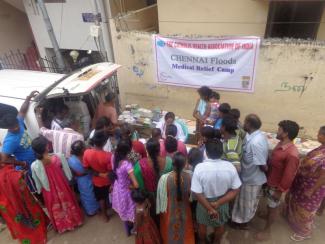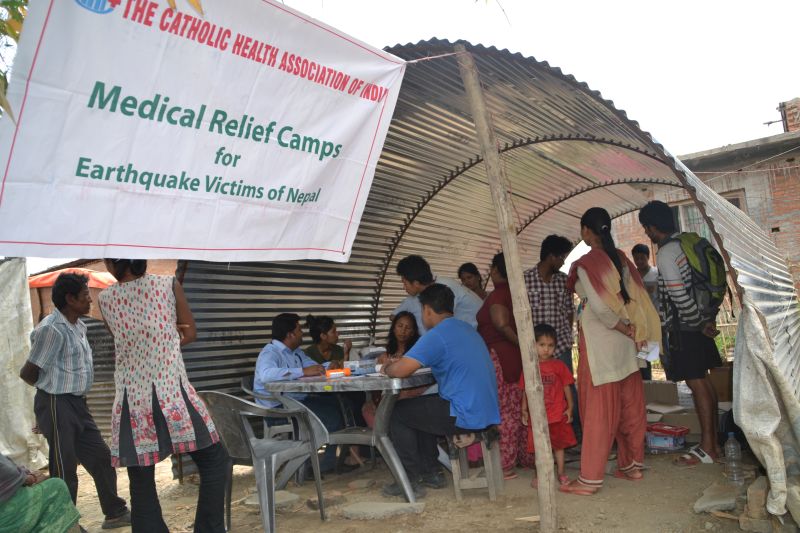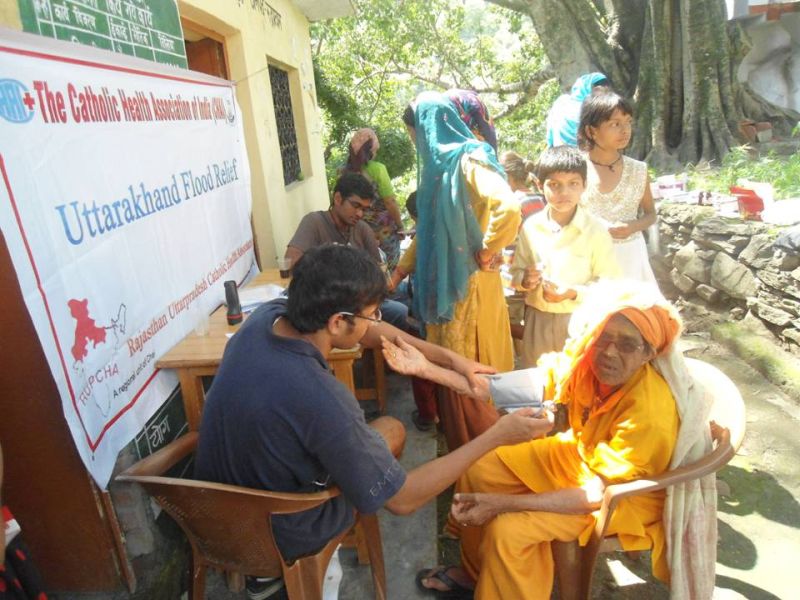Disaster relief
Faith-based network

CHAI is celebrating its 75th anniversary this year. It was established in 1943 by Mary Glowrey, an Australian nun and medical doctor. Today, it is the country’s second largest not-for-profit health-care provider, after the government. CHAI currently has 3,534 member institutions (MIs) of which 90 % are headed by women and 80 % operate in medically under-served areas.
Since the Latur earthquake, CHAI has been engaged in disaster relief. It has delivered humanitarian aid in other crises including Orissa’s super cyclone in 1999, the anti-Muslim riots in Gujarat in 2002 and the floods in Bihar and Uttar Pradesh in 2017. Moreover, CHAI relief teams went to Nepal after the devastating earthquake in 2015. CHAI relief teams provide medical aid and psychological support, often cooperating with other non-governmental organisations and government bodies in a specific area. Thanks to its many MIs, CHAI can respond to calamities fast.
CHAI is supported by various international faith-based charities including Misereor, Missio Aachen, Kindermissionswerk and Malteser International in Germany. With support from the Dutch charity Liliane Fonds, CHAI has started to pay special attention to the people with disabilities after catastrophes.
CHAI and its member institutions collaborate with other health-care providers, both governmental and non-governmental. Since 1 August 2013, CHAI has a special consultative status with the UN Economic and Social Council (ECOSOC). CHAI wants India to achieve the UN’s Sustainable Development Goal 3: “Ensure healthy lives and promote well-being for all at all ages”. (ma/rk)









